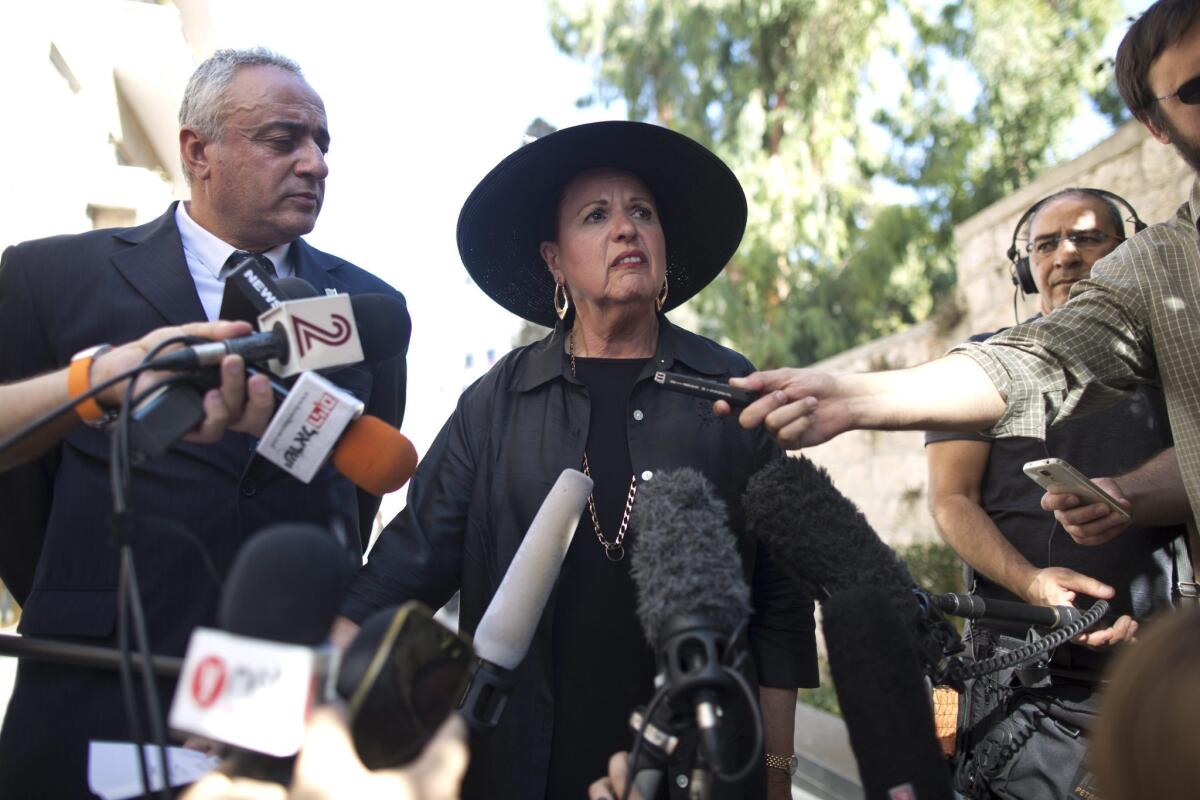Editorial: Jonathan Pollard: Not a hero, not a martyr, just a criminal who’s served his time

Jonathan Pollard’s wife, Esther Pollard, cries as she gives a statement to the media in Jerusalem on July 29. The former U.S. Navy intelligence analyst was convicted of spying for Israel and will be released on November 20 after serving 30 years in jail.
As recently as last year, the Obama administration seemed willing to treat Jonathan J. Pollard, a former U.S. Navy intelligence analyst sentenced to life for spying for Israel, as a bargaining chip in Middle East diplomacy. At the time we criticized any linkage between freedom for Pollard — a hero to many Israelis but a despised figure in the U.S. intelligence community — and peace negotiations between Israel and the Palestinians. Yet we also noted that Pollard would be eligible for parole in November 2015.
The peace negotiations collapsed and Pollard did not receive clemency from President Obama. But, thanks to a decision earlier this month by the U.S. Parole Commission, he will indeed be freed in November. That decision is defensible based on both the law at the time he was sentenced — which allowed parole even for defendants sentenced to life — and the fact that he has served almost three decades in prison, a significant punishment for a serious crime. Pollard sold Israel what prosecutors said were massive amounts of technical information about U.S. spy satellites and other collection systems.
Even now, some see a political explanation for Pollard’s release, suggesting that he benefited from a desire by the administration to ease tensions with Israel over the proposed Iran nuclear agreement. The administration insists there was no such connection. Secretary of State John F. Kerry said that he hadn’t even had a conversation on the subject, and the Justice Department said its consistent position has been that Pollard “should serve his full sentence for the serious crimes he committed, which in this case is a 30-year sentence.”
It’s true that the Justice Department could have lodged an objection to Pollard’s release on the grounds that he posed a future danger. But such a threat seems far-fetched, and it would have been wrong for the government to oppose parole on a pretext simply to dramatize its distaste for Pollard or even to deter future acts of espionage.
The problem with bartering Pollard’s freedom for Israeli concessions was that it would have injected diplomatic considerations into a matter that should have been resolved as a matter of justice. By contrast, Pollard is now going to be freed as a result of the orderly workings of the legal system. One can support that outcome without excusing what Pollard did, or accepting the flimsy rationalization offered by his supporters that espionage against the U.S. is acceptable so long as it’s in the service of a friendly country.
Pollard is neither a hero nor a martyr but a criminal who has served his time. Releasing him is a matter of justice, not an exercise in diplomacy.
Follow the Opinion section on Twitter @latimesopinion and Facebook
More to Read
A cure for the common opinion
Get thought-provoking perspectives with our weekly newsletter.
You may occasionally receive promotional content from the Los Angeles Times.









